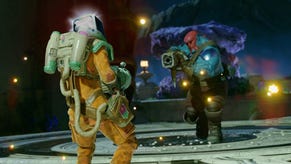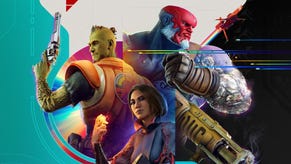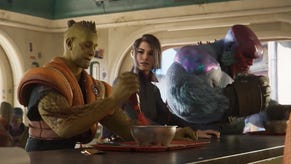Concord feels like a load of brilliant games combined - but is that enough?
A Mach of the Clones.
Everything else aside, Concord definitely throws up an interesting question. Does doing every distinct, individual part of a game as well as it can be done lead to a good game in itself? We're a step away from "what makes a good game?" here, a mountain-sized can of worms. A worm volcano. Not going near that one - but Concord does make me wonder.
A 5v5 hero shooter that is online and multiplayer-only, Concord's initial reveal was awkward. Its true nature became apparent only after a lengthy, lavish Guardians of the Galaxy-style narrative cinematic, that had all these interesting new characters galloping about an interesting new universe. People saw that, and saw Sony, and then saw what it actually was. Enter discussion of live service burnout and bait-and-switch marketing and quite astonishingly final dismissals of it, before a game had been played. The good news, for Concord and for brand-new developer Firewalk Studios, is that those dismissals were as premature as they seemed. Concord is good. The bad news is I can't figure out how good, just yet, from a couple of hours playing it - and that the actual way in which it is good might be the thing that gets in the way of its own success.
Concord is good in the sense that it feels like - and has been intentionally designed to feel like - a combination of a lot of other, excellent, multiplayer games. The first and maybe most surprising is that it feels less like Overwatch than it does a few rounds in the Crucible of Destiny. There are floaty, aerial caster characters, charging, punching tanks, gun-and-grenade shooters, and a sense of perpetual tumble-dryer motion to the to-and-fro flow of its maps. That starts to make more sense when you realise where Firewalk's development talent has come from. Bungie, for one. But then there's also expertise from developers of Overwatch, yes, and also Halo, and Call of Duty, and Apex Legends, and more.
At this point I should probably describe what it actually is. Concord is a pure multiplayer team shooter. You choose from sixteen maps and six modes, and then one of 16 characters at launch - "Freegunners" here - and you play 5v5 games online, earn a bit of currency towards some minor meta-progression, explore a text-based archive of lore in your spare time if you fancy it, watch a one- or two-minute narrative video as they're dropped on a weekly basis, and that's it.
Firewalk's team were at great pains to highlight the care and attention that's been put into that worldbuilding and lore - and on first impressions there certainly has been. That lore archive is really "lore heaven", as Kim Kreines, Firewalk's director of IP, put it to the group of journalists present. It's a seemingly vast galactic map, with each planet and star a node to be interacted with for a nugget, or dump, of backstory and information. And the commitment to those weekly cinematics is significant - these things aren't cheap.
Kreines explained that the studio had been building out the plan for regular story "vignettes" as something that would be as essential as new gameplay features or otherwise. "We've had a chance to really make our pipeline efficient and work on how we're going to do this in the long term," she said, "and I'm excited. It's a huge opportunity. Yes, it's a big undertaking, but it's something that we believe strongly in, and it's a way to make the story real."
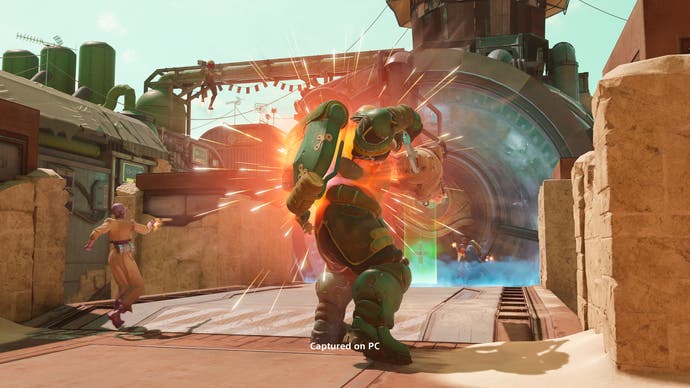
.png?width=690&quality=75&format=jpg&auto=webp)

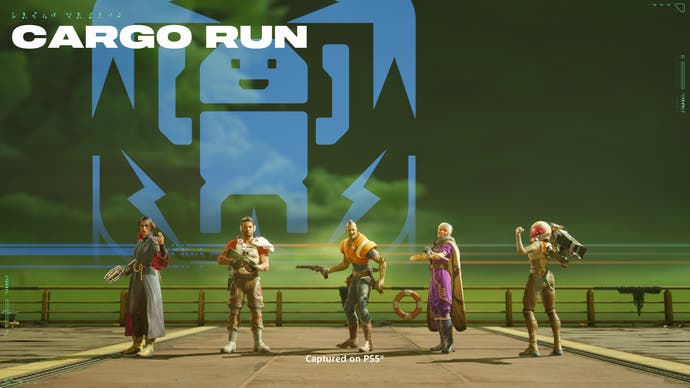
As significant as that commitment to storytelling and character depth may be, Concord's moment-to-moment gameplay is paramount, and while much of it might seem very familiar - the roster of heroes, the types of game mode (minor variations of king of the hill, kill confirmed, and capture the flag were what we played), and so on - there was one interesting twist. Concord has a system where each class of character has a class buff, but that buff persists for the entire round, even when you switch characters to one from a different class. And they stack - meaning there's a small element of progression within each round.
The inspiration for this, as lead character designer Jon Weisnewski explained, is another wildly successful competitive game, in League of Legends. "I play a lot of MOBAs," he said. "I watch a lot of RTS esports. There's a lot of stuff that happens on the strategy layer, like the macro level, and those kinds of games are really inspiring to me - I think we've been able to bring some of that into this game with the crew builder and other cool bonuses that unlock over time so you get those little bites of power."
He used League of Legends as an example: "You get to the end of the League match, and you've got deep into your build tree, and you're like this souped up version of the character, and then you go into the next game and you're starting from scratch, and you're like 'argh!'" That's the notion the team was working with: "Just little, incremental power unlocks that happen over time, and you can kind of feel them, and then you get to the end of the match and you're like, 'Okay! I'm more of a super soldier now.'"

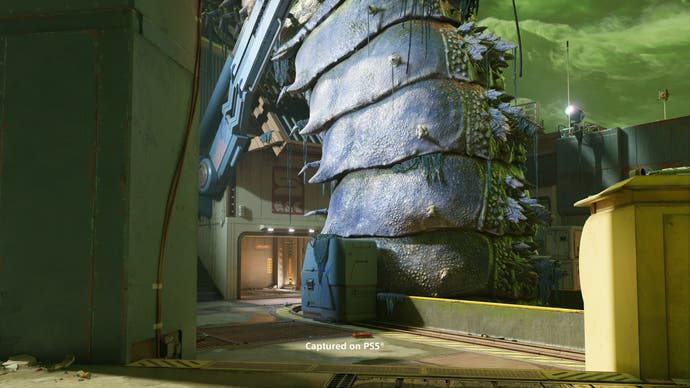
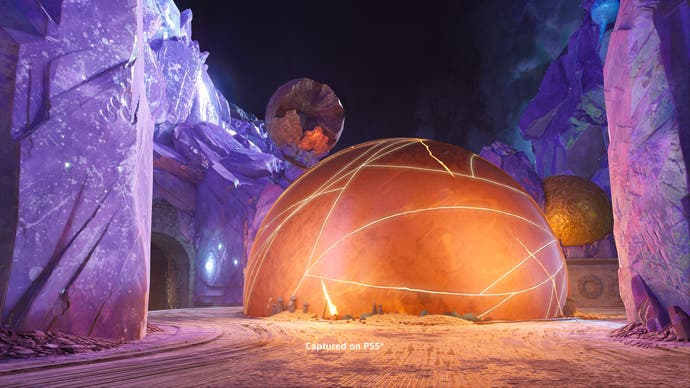
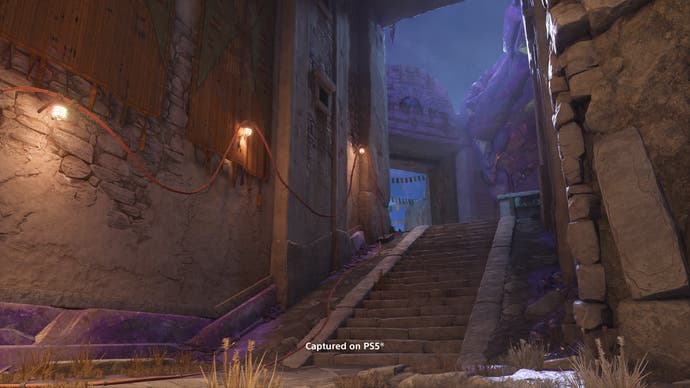
Playing it, I'd say "super soldier" is a bit strong. The issue with incremental power increases happening at the same time as everyone else having incremental power increases, largely detached from your own performance, is that everyone is getting gradually stronger at more or less the same rate. Games feel marginally more intense in their latter phases, but not much. These bonuses, for instance, are very minor. One is a slight increase in reload speed. Another is a slight cooldown to how often you can perform a dodge. Put them on the right Freegunner for the end of the game and they can help a bit - they worked particularly well for me on, say, Star Child, the berserking tank with a slow-reloading, high damage shotgun. But "a bit" really is key here.
This, ultimately, is Concord's big issue. It is good fun to play, as any competently-made first-person multiplayer shooter is. The movement is Destiny-like in its slight waftiness and emphasis on momentum and verticality - a Marmite choice if there ever was one, but one I personally enjoy. Its big roster's applaudable diversity and cheery characterfulness is straight from the Overwatch playbook - though I'd say it's maybe lacking the immediate recognisability of its archetypes that Blizzard's still so good at even today. The all-important gunfeel is good, and curiously varied - the very standard FPS character in Teo feels like a Call of Duty style of shooting, twitchy and rapid, while the beginner-friendly Daw, a medic character with a minigun with lightly homing projectiles, maybe feels more Overwatch again. Maps have a lovely three-laneiness to them, that makes each one ripe for flanking and lightly-coordinated teamwork. And other characters have a genuinely unique style: I loved 1-Off, a sentient bin with a weapon that sucks in all enemy projectiles, simultaneously providing a supportive effect for your team and also acting as your ammo, for returning it to sender in the form of a narrow beam of rubbish, or a short range bomb of massive damage.
But, all in all, Concord can't help but feel like many of the other competent games made by other highly competent former-developers of other big, successful multiplayer games. In other words: a game that places individual moments of that high-level competency within its various disciplines - diverse, fleshed-out characters! Satisfying gunfeel! Intelligently-limited verticality! Sensible environment design! No gameplay-affecting microtransactions! - above an overall uniqueness of vision that binds it together. Each element done in absolutely the right way, but not necessarily in service of anything more than simply doing things the right way. The true hook with Concord, I suspect, will reveal itself once it's in the hands of its audience, as they wrestle with optimal combinations and strategies and the meta begins to congeal. This is where an online game's true form can reveal itself - but for some games, by that point it can already be too late. My fingers are crossed for this one being given enough time to find its identity on the fly.



